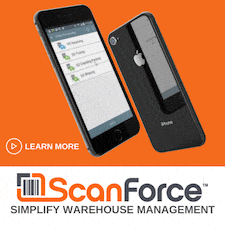Why Take the Time to Motivate Employees?
According to Gallup’s State of the American Workplace report, 51 percent of the American workforce is not engaged. Why is this important? That same report shows that engaged employees have a 41 percent lower rate of absenteeism, and 17 percent higher rate of productivity. Highly engaged employees are also less likely to job hop, which translates to lower a turnover rate. In most cases, employees who are not engaged are simply looking for inspiration, something that triggers them to perform at a higher level.
With that in mind, here are some steps to improve employee performance and engagement at your company.
With that in mind, here are some steps to improve employee performance and engagement at your company.
HR Professionals Can Improve Engagement
Human resources professionals are central to improving engagement through motivation. Launching employee surveys to gauge attitudes toward work environments, policies, projects, and assignments is a good way to begin the two-way dialog of engagement.
The act of conducting an employee survey in and of itself engages employees. It provides employees a way to express their feelings, thoughts, and ideas. Employees are the best source to define what motivates them. Once a company can identify what is working and what is not, a plan for improvement can be developed.
Outline specific goals with messaging and communication for departments and individuals that need attention, inspiration, and motivation. It is paramount to take the survey results to heart, listen to what is expressed and proceed with actionable initiatives. This will lead your organization to some real, documented discoveries and on a pathway for improved engagement and performance.
The act of conducting an employee survey in and of itself engages employees. It provides employees a way to express their feelings, thoughts, and ideas. Employees are the best source to define what motivates them. Once a company can identify what is working and what is not, a plan for improvement can be developed.
Outline specific goals with messaging and communication for departments and individuals that need attention, inspiration, and motivation. It is paramount to take the survey results to heart, listen to what is expressed and proceed with actionable initiatives. This will lead your organization to some real, documented discoveries and on a pathway for improved engagement and performance.
Open Communication is Key
Open communication is key to improving engagement and motivation. When an employee has a stake in an outcome (i.e. understands how their tasks and goals are integral to the big picture goals and mission of the organization), they automatically become more motivated.
People perform at their best when they feel motivated. Working with managers to improve their communication skills goes a long way to enhancing the type and frequency of feedback employees receive during performance conversations.
In a 2020 State of Performance Management study conducted by HR.com and sponsored by LightWork Software, HR professionals report that just 28 percent of the managers in their organizations are skilled at performance management. Cited as the primary reason behind this deficiency is a lack of training. Manager training may be one of the most valuable performance initiatives an organization can make because managers serve as the most immediate and direct way to motivate employees.
According to a 2017 Gallup Report, managers are responsible for at least a 70 percent variance in their employee’s engagement. Additionally, employees whose managers regularly communicate with them are three times more engaged and motivated than those with managers who do not regularly communicate. Organizations that achieve their performance management goals to a high or very high degree report their managers also have more frequent and informal performance-related conversations with employees.
People perform at their best when they feel motivated. Working with managers to improve their communication skills goes a long way to enhancing the type and frequency of feedback employees receive during performance conversations.
In a 2020 State of Performance Management study conducted by HR.com and sponsored by LightWork Software, HR professionals report that just 28 percent of the managers in their organizations are skilled at performance management. Cited as the primary reason behind this deficiency is a lack of training. Manager training may be one of the most valuable performance initiatives an organization can make because managers serve as the most immediate and direct way to motivate employees.
According to a 2017 Gallup Report, managers are responsible for at least a 70 percent variance in their employee’s engagement. Additionally, employees whose managers regularly communicate with them are three times more engaged and motivated than those with managers who do not regularly communicate. Organizations that achieve their performance management goals to a high or very high degree report their managers also have more frequent and informal performance-related conversations with employees.
Motivated Employees Achieve Better Outcomes
Motivated employees are achieving better outcomes. In fact, published research conducted by the Hay Group in 2001 revealed that offices with engaged employees were as much as 43 percent more productive. They start to look for ways to better themselves and the way they do things. They become more focused on the quality of work rather than the amount of work completed.
Motivation can come in many shapes and forms and requires good communication skills on the part of those delivering the messages. A simple acknowledgment of a job well-done could be sufficient in some cases. In other circumstances, giving a raise or promotion to an employee can motivate them to work harder within the company. Any reward an employer gives to an employee signals they are a valuable asset to the company. It is important that employers and managers demonstrate to each employee they are important to the company.
Even if everything seems to be running smoothly, you never know when a person may need a boost. Motivation can be used at any time, but especially now, when nearly everything about how employees work and live their lives have changed due to the pandemic.
Keeping employees engaged and focused is essential to your organization’s bottom line. At times of instability, employees can start to feel insecure and unsure of where they fit into the company’s overall goals. By communicating and motivating, you will be on the right path. They will move their focus back to working hard which will eventually contribute to the company’s success. Motivated people turn the impossible into the possible.
Motivation can come in many shapes and forms and requires good communication skills on the part of those delivering the messages. A simple acknowledgment of a job well-done could be sufficient in some cases. In other circumstances, giving a raise or promotion to an employee can motivate them to work harder within the company. Any reward an employer gives to an employee signals they are a valuable asset to the company. It is important that employers and managers demonstrate to each employee they are important to the company.
Even if everything seems to be running smoothly, you never know when a person may need a boost. Motivation can be used at any time, but especially now, when nearly everything about how employees work and live their lives have changed due to the pandemic.
Keeping employees engaged and focused is essential to your organization’s bottom line. At times of instability, employees can start to feel insecure and unsure of where they fit into the company’s overall goals. By communicating and motivating, you will be on the right path. They will move their focus back to working hard which will eventually contribute to the company’s success. Motivated people turn the impossible into the possible.
Technology Solutions Offer HR Options for Success
To track and document employee performance, technology solutions are a good tool to include in the process. LightWork Performance Management offers HR professionals a way to manage frequent and necessary performance review communications by facilitating meetings, reviews and storing necessary documentation.
LightWork® Software makes the human resources management experience easy and valuable to your organization. LightWork turns the overwhelming task of managing employees into an indispensable business strategy with dynamic human resources management software tools. Because each organization’s IT requirements are as diverse as its employees, we offer a web-based software human capital management (HCM) solution with deployment options, your company’s local server, private cloud or as a software as a service (SaaS).
LightWork® Software makes the human resources management experience easy and valuable to your organization. LightWork turns the overwhelming task of managing employees into an indispensable business strategy with dynamic human resources management software tools. Because each organization’s IT requirements are as diverse as its employees, we offer a web-based software human capital management (HCM) solution with deployment options, your company’s local server, private cloud or as a software as a service (SaaS).




